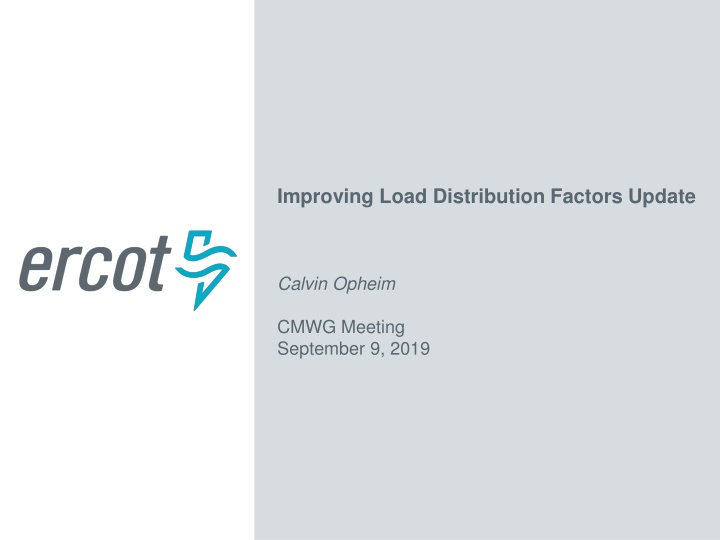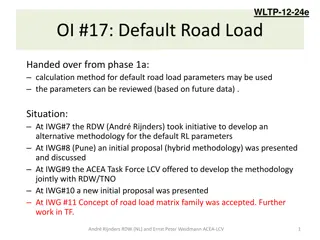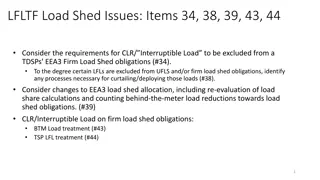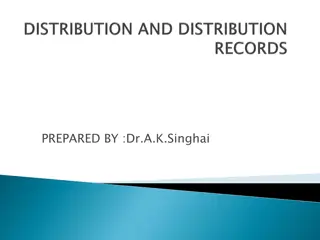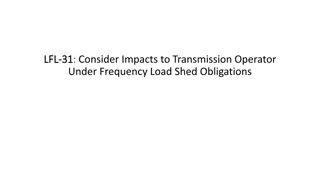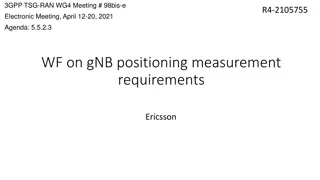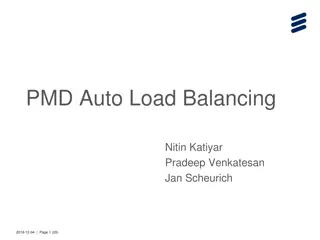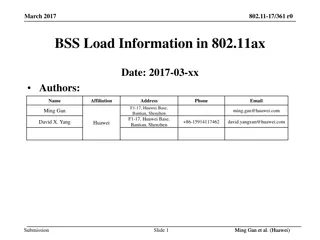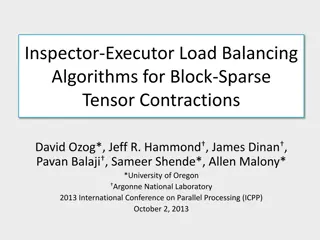Enhancing Load Distribution Factors for Improved Accuracy
Explore techniques to enhance load distribution factors for better accuracy, considering weather forecasts that can change daily. Tasks include utilizing Mid-Term Load Forecast models, improving error correction settings, and implementing a neural network model. The aim is to increase forecast accuracy by at least 20%. Various methods such as weather-sensitive error correction are being investigated for effectiveness in optimizing load distribution factors.
Download Presentation

Please find below an Image/Link to download the presentation.
The content on the website is provided AS IS for your information and personal use only. It may not be sold, licensed, or shared on other websites without obtaining consent from the author.If you encounter any issues during the download, it is possible that the publisher has removed the file from their server.
You are allowed to download the files provided on this website for personal or commercial use, subject to the condition that they are used lawfully. All files are the property of their respective owners.
The content on the website is provided AS IS for your information and personal use only. It may not be sold, licensed, or shared on other websites without obtaining consent from the author.
E N D
Presentation Transcript
Improving Load Distribution Factors Update Calvin Opheim CMWG Meeting September 9, 2019
Objective Explore techniques to improve the accuracy of the non-PUN LDFs Take into account weather forecast Shape can change on a daily basis 2 ERCOT Public
Work Plan Near-term (completed): Explore using Mid-Term Load Forecast (MTLF) models for non-PUN LDFs In progress: Explore improving the accuracy of PUN LDFs Determination of auto error correction settings 3 ERCOT Public
Model Model form Use neural network model with 3 sigmoid nodes and 1 hidden layer Why use a neural network? Provides faster results than other techniques Don t have the staff to build 6,000+ models on a one-by-one basis Hoping to find a single model that improves the current forecast by at least 20% 4 ERCOT Public
Model Model variables Dry Bulb Temperature Month Day of Week Hour Ending Actual Load from 48 hours before 5 ERCOT Public
Error Correction Currently error correction is automatically applied to the top 10% of buses with the highest forecast error for each weather zone Based on the most recent day where actual values are available (yesterday) This changes on a daily basis Exploring expanding the use of this technique 6 ERCOT Public
Weather Sensitive Error Correction Effective ERCOT Public
Non-Weather Sensitive Error Correction Effective ERCOT Public
Weather Sensitive Error Correction Sometimes Better ERCOT Public
Weather Sensitive Error Correction Questionable ERCOT Public
Non-Weather Sensitive Error Correction Questionable ERCOT Public
Non-Weather Sensitive Recent Load Change ERCOT Public
Non-Weather Sensitive Recent Load Change ERCOT Public
Weather Sensitive Error Correction Worse ERCOT Public
Weather Sensitive Error Correction Worse Actuals (through 30AUG2019), pre-, and post-error-correction Forecast (through 01SEP2019) COAST TWG*TR2 ERCOT Public
For Discussion Prioritize locations with a history of high costs? Forecast must be available by 6 am? What if it is late? Use prior days forecast? Load Forecasting is not staffed for consistent round the clock support. Is this required? Models are currently developed using State Estimator values. If SCADA is available should it be used? 16 ERCOT Public
Current Status Determining the optimum use of error correction for each location Daily monitoring of LDFs Evaluating model updates to improve accuracy (4 CP, other lagged load values like daily maximum demand or minimum demand, etc) Providing the new LDFs to the Market Operations team for their evaluation 17 ERCOT Public
Outstanding Tasks Need to develop a process which will pass the new LDFs into the EMS system Update Load Distribution Factor Other Binding document and Protocols 18 ERCOT Public
Questions? 19 ERCOT Public
